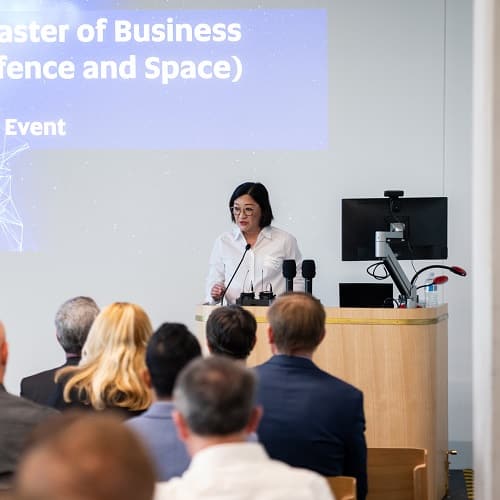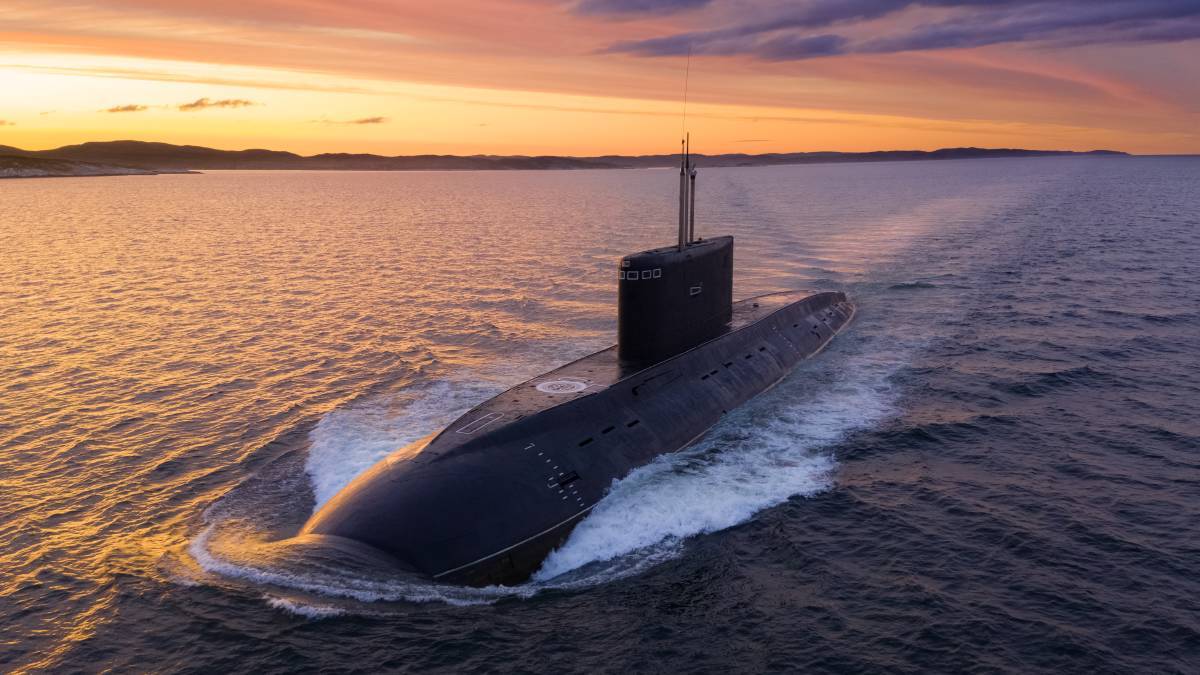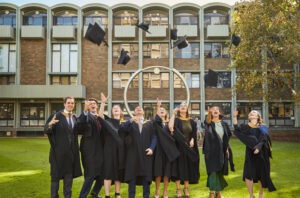Executives and senior managers from the defence and space sectors around Australia, the US and UK will begin a specially curated global program to help build a pipeline of talent across the AUKUS alliance.
The first hand-picked cohort of students from the University of South Australia’s trailblazing Global Executive MBA in Defence and Space will begin the customised 18-month program this week.
UniSA has partnered with the University of Exeter (UK) and Carnegie Mellon University (USA) to launch the Global Executive MBA in Defence and Space, the first program of its kind in Australia tailored to meet the most pressing challenges facing the two sectors.

Students include executives and senior managers from defence contractors and subject matter experts, senior members of the Australian Defence Force and allied countries, and civil servants.
Leveraging the growth of two key sectors and the recent AUKUS strategic alliance, the MBA will help address critical skills gaps in cyber security, space systems, geopolitics and defence procurement and build innovative and leadership capabilities required across the sectors.
Professor Lan Snell, Dean of Programs (Postgraduate), UniSA Business, says UniSA entered into an Education Partnership Agreement with the two international universities reflecting the AUKUS arrangement.
“The AUKUS announcement presents significant opportunities for those directly in the sector and those servicing the sector,” Prof Snell says.
“The complexities associated with the multi-decade projects require a range of skills and capabilities, ranging from technical skills through to project management and leadership capabilities.”
“The tri-lateral arrangement means working with different cultures, agencies, organisations, and teams. This requires technical understanding as well as future-focused capabilities such as communication, teamwork and problem solving.”
The program features online study and intensive face-to-face residential teaching blocks in Adelaide, as well as in Washington D.C. and Pittsburgh with Carnegie Mellon University and in London with the University of Exeter.
The inaugural cohort will commence their first intensive residential program in Adelaide from Monday 18 September to Friday 29 September.
The Global Executive MBA is designed for uniformed and non-uniformed personnel from small and large defence companies, government, and adjacent industries from AUKUS and other allied nations to develop the workforce capabilities required for this new era.
“The defence and space sectors are a prime example of industries that require leaders who can navigate complex geopolitical relationships and work across different cultural and institutional contexts,” Prof Snell says.
Among them will be Glen Gallagher, Operations Manager at Boeing Defence Australia. He says the Global Executive MBA will help solve future challenges such as being on the forefront of AI and space weaponisation and the ethical use of autonomous systems, all of which pose unique moral dilemmas.
“We must navigate the delicate balance between innovation, effectiveness and conscience,” Gallagher says.
“The Global Executive MBA will also help act as catalysts for those of us in the defence and space sector, to drive us forward to make informed decisions using the visionary leadership skills gained throughout the course.
“Being in the defence industry, I often find our sector can be at the centre of political and moral debate – dependent on either the product or the international relationships involved. Handling these deliberations with composure requires an individual to be adept at managing public relations, political pressures, and the ethical implications in the use of our products. I see the Global Executive MBA program as a way of helping me overcome some of these personal hurdles.”
Gallagher and his MBA peers will undertake residencies in the US and UK as part of the program. He says the cities Washington D.C. and London are “centres of global influence and thought.”
“Undertaking academic residency overseas is going to expand my intellectual horizon while also allowing me to forge some invaluable global networks. I find the prospect of a shared global experience and the strategic, collaborative vision offered through the program very exciting.”
Professor Alexandra Gerbasi, Dean of the University of Exeter Business School, comments on the opportunity presented by the Global Executive MBA.
“The type of long term, complex international collaboration needed for successful defence projects calls for high level management and leadership skills. With one of the longest established leadership research centres in the UK, as well as significant experience in defence work, Exeter is well placed to make a strong contribution to the Global Executive MBA program and to the development of these critical skills,” Prof Gerbasi says.
“We are keenly looking forward to working with UniSA and Carnegie Mellon University. International co-operation is already core to much of our research activity and I am confident that working together on important education programs like the Global Executive MBA will lead to great outcomes for students as well as for our three institutions.”
Isabelle Bajeux-Besnainou, Dean and Richard P. Simmons Professor of Finance, Carnegie Mellon University Tepper School of Business, comments: “In this trilateral arrangement, we are not just educating individuals, we are fostering global collaboration and shaping an intelligent future.”
“Together, we will equip professionals with the technical understanding and future-focused skills needed to thrive in these dynamic sectors,” Dr Bajeux-Besnainou says.







